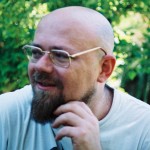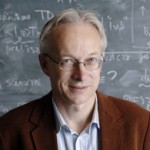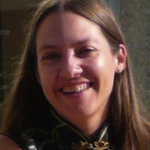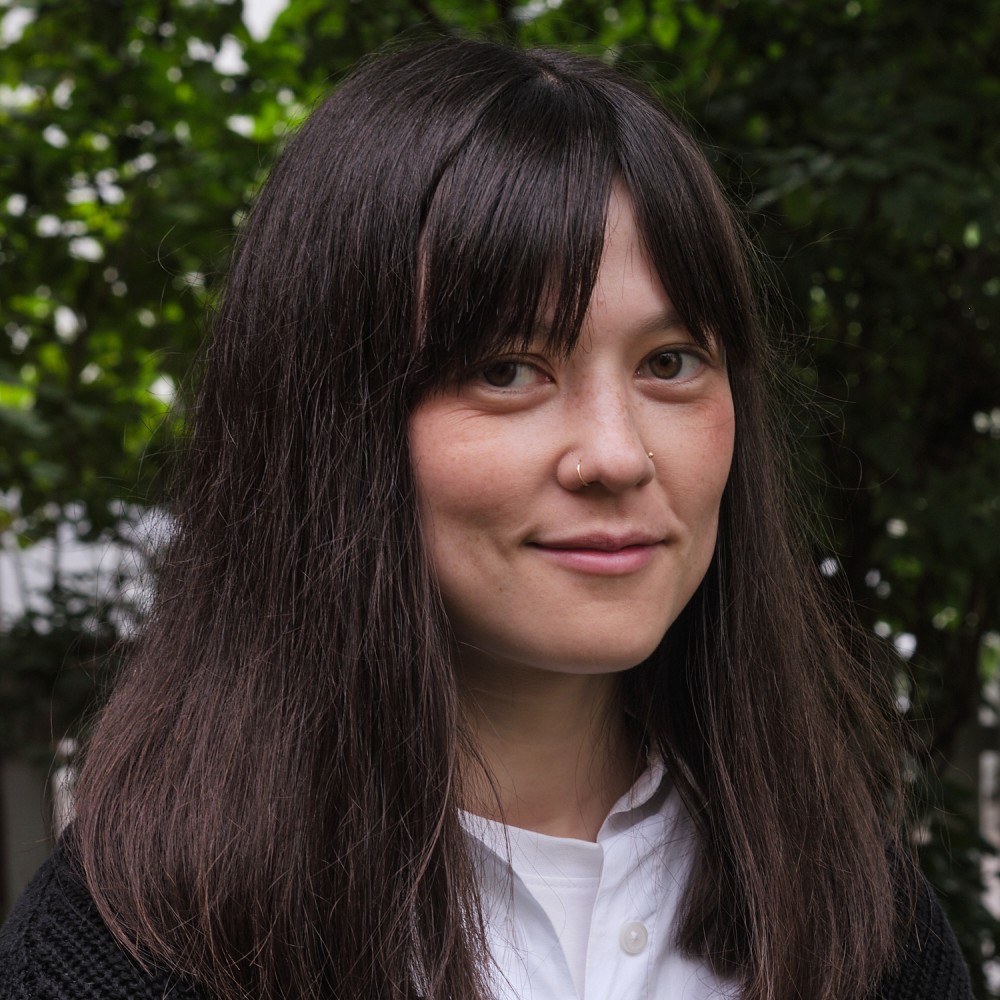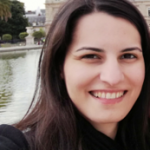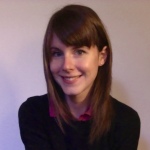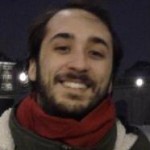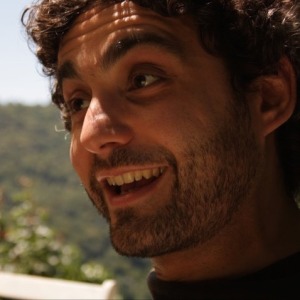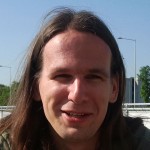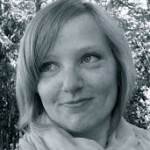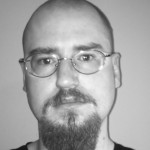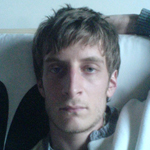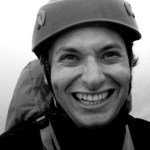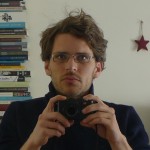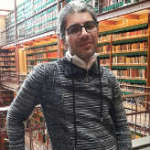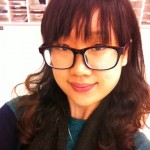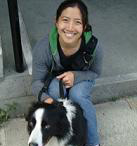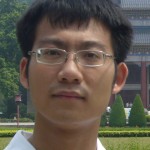Senior Staff
Alexandru Baltag is an Associate Professor at the Institute for Logic, Language and Computation (University of Amsterdam). He is known mostly for his work in logics for multi-agent information flow (– he was one of the originators of dynamic epistemic logic) and their applications to communication, game theory, epistemology etc. He also worked on non-wellfounded set theory, coalgebraic logic, logics for quantum computation, game semantics, learning theory. His MS in Mathematics was obtained in 1989 at the University of Bucharest. He received his PhD in Mathematics in 1998 at Indiana University under the supervision of Jon Barwise. Between 1998 and 2001, he was a post-doctoral researcher at the Dutch Center for Mathematics and Computer Science. Between 2001 and 2011 he was a University Lecturer at Oxford University, in the Department of Computer Science.
Johan van Benthem is Henry Waldgrave Stuart Professor of philosophy at Stanford University, and Distinguished International Expert of the Chinese Ministry of Education at Tsinghua University Beijing. He has worked in modal logic, temporal logic, logical semantics and syntax of natural language, as well as logics of computation and communication. His books include “The Logic of Time” (1983), “Modal Logic and Classical Logic” (1985), “Essays in Logical Semantics” (1986), “Language in Action” (1991), “Exploring Logical Dynamics” (1996), “Modal Logic for Open Minds” (2010), “Logical Dynamics of Information and Interaction” (2011), and “Logic in Games” (2012). Some current projects: (a) Logical dynamics of information-driven agency, (b) Logic and games, (c) Logic and philosophy, (d) Interfacing logic and cognitive science, (e) New perspectives in history of logic, (f) Public outreach projects in logic teaching and logic awareness generally.
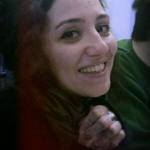
Aybüke Özgün is an assistant professor at the ILLC. She holds a PhD in computer science and logic from LORIA (Université de Lorraine) and the ILLC ( University of Amsterdam), obtained under the supervision of Nick Bezhanishvili, Hans van Ditmarsch and Sonja Smets. Previously she obtained a Msc degree in Logic at the ILLC and a BSc degree in Mathematics at Boğaziçi University in Istanbul. The core of her research lies informal epistemology, in particular in dynamic epistemic logic with a speacial focus on evidence-based knowledge and belief modelled on spatial/topological structures. Some of her other interests include logic and topology, epistemic learning theory and belief revision.
Sonja Smets is a full professor at the Institute for Logic, Language and Computation at the University of Amsterdam. She obtained her PhD at the Free University of Brussels in 2001. She started as a post-doctoral researcher at the Flemish Fund for Scientific Research and became a part-time lecturer at the Free University of Brussels till 2009. In 2005-2006 she was a visiting scholar at the London School of Economics, and in 2008 at both the Institute for Logic, Language and Computation at the University of Amsterdam, and the School of Informatics at Indiana University. In 2009 she worked as an assistant professor with a Rosalind Franklin Research Fellowship at both the Faculty of Philosophy (Dept. Theoretical Philosophy) and the Faculty of Mathematics & Natural Sciences (Multi-agent Systems Group in Artificial Intelligence) at the University of Groningen. In 2009, she received a VIDI award and in 2011 she received and ERC starters grant. Her research programme ranges over Logic (in particular non-classical logics, including non-monotonic logics, belief revision, modal and temporal logic, quantum logic); Multi-agent Systems; Formal Epistemology; Philosophy of Science, Philosophy of Quantum Physics, Quantum Information and Computation.

Malvin Gattinger is an assistant professor at the ILLC. Before this he was a PostDoc Fellow at the Bernoulli Institute at the University of Groningen. Previously he was a PhD candidate at the ILLC, working under the supervision of Dr. Jan van Eijck. Previously he obtained a MSc in Logic at ILLC and a Teaching Degree in Philosophy and Mathemathics at Phillips-Universität Marburg. He is working on Model Checking for Dynamic Epistemic Logic and has a special interest in functional programming. His other interests include modal logic in general, gossip protocols and epistemic planning.
Post-Docs
Mina Young Pedersen is a postdoctoral researcher working at the ILLC and in the University of Amsterdam-wide research priority area in Human(e) AI. Before she started working in Amsterdam, she completed a PhD in Information Science in the Logic and AI research group at the University of Bergen under the supervision of Marija Slavkovik, Thomas Ågotnes and Sonja Smets. Even before that, she obtained an MSc in Logic from the ILLC, a BA in Philosophy from the University of Oslo and a BSc in Mathematics from the Norwegian University of Science and Technology. Her research interests lie at the intersection of social network theory and modal logic, where she explores phenomena such as information flow, opinion formation and epistemic attitudes in social settings using logical tools.
PhD Students
(to be updated)
Past Members and Visitors12
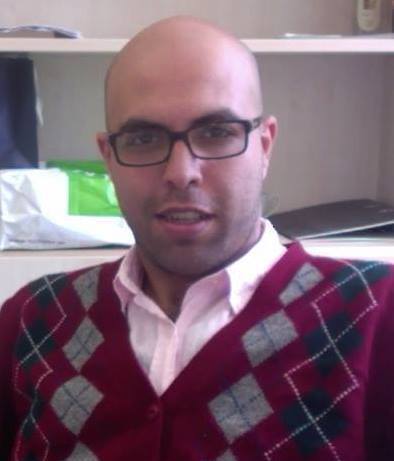
Soroush Rafiee Rad was a postdoc fellow at the Dutch Institute for Emergent Phenomena (DIEP) and the ILLC. Before joining ILLC, he was a postdoctoral researcher at Bayreuth University and Munich Center for Mathematical Philosophy. He completed a PhD in Mathematical Logic under the supervision of Prof Jeff Paris at the Department of Mathematics at the University of Manchester where he was a Marie Curie fellow, and a PhD in Formal Epistemology under the supervision of Prof. Stephan Hartmann at the Tilburg Center for Logic and Philosophy of Science. He has been a visiting researcher at the London School of Economics, CUNY Graduate Centre and University of Kent. His research areas include Probabilistic Reasoning, Belief Revision, Dynamic Epistemic Logics, Quantum Logic, Multi-Agent Systems and Formal Epistemology.
Anthia Solaki was a postdoctoral researcher at the RPA Human(e) AI of the University of Amsterdam. She obtaind her PhD from the ILLC under the supervision of Sonja Smets and Franz Berto. She previously obtained a MSc degree in Logic at the ILLC and a BSc degree in Mathematics at Aristotle University of Thessaloniki. Her PhD project “Logic meets real reasoners” aims at the logical modelling of actual human reasoning, informed by empirical findings on Bounded Rationality. Her main research currently lies at the intersection of logic, epistemology, and psychology of reasoning, while she is also interested in the formal modelling of social phenomena.
Ilaria Canavotto has been a postdoctoral researcher at the ILLC. Her research mainly focused on temporal logics of agency and deontic logics, in connection with the notions of causality, responsibility, and normative system. She has recently completed her PhD at the ILLC, under the supervision of Franz Berto, Sonja Smets, and Alessandro Giordani. Before joining the ILLC, she received an MA degree in Logic and Philosophy of Science at the Munich Center for Mathematical Philosophy (MCMP), Ludwig-Maximilians-Universtät München and an MA degree in Philosophy at the Catholic University of Milan.
Fernando R. Velázquez Quesada was a postdoctoral researcher at the ILLC working with Sonja Smets. He has a BSc in computer science from the University of Puebla, a MSc also in computer science from the National Autonomous University of México, and a PhD from the University of Amsterdam. He also spent five years as a postdoc at the Faculty of Philosophy of the University of Seville. He is mainly interested in formal representations of dynamics of information, broadly speaking, and his research areas include formal and social epistemology, modal logic, epistemic logic, dynamic epistemic logic, belief revision and multi-agent systems.
Ana Lucia Vargas Sandoval has been a PhD candidate at the ILLC under the supervision of Dr. Alexandru Baltag, Prof. Dick de Jongh and Dr. Aybuke Ozgun. She obtained her MSc in Logic at the ILLC and her Bachelor degree in Mathematics and Physics at Universidad Michoacana de San Nicolás de Hidalgo in Morelia, Mexico. Her current research lies at the interface between learning theory with special focus on finite identification and epistemic learning theory with a topological approach. She is also partially working on studying some fragments of propositional logic. Some of her other interests include modal logics, belief revision and logical modelling in cognitive science.
Giovanni Ciná has been a PhD candidate at the Institute for Logic, Language and Computation, working under the supervision of Dr. Alexandru Baltag. Previously he obtained a MSc in Logic at ILLC and a MSc in Philosophy of Science at the London School of Economics and Political Science. His BA is in Philosophy, from the University of Milan. His current research interests revolve around the intersection of Category Theory and Modal Logic, branching to topics in Theoretical Computer Science, Quantum Theory and formal models of social phenomena.
Jan van Eijck was senior researcher at CWI (Centrum Wiskunde en Informatica) and part time professor at ILLC. His interests are semantics of natural language and of programming languages, computational linguistics, applications of logic to the analysis of communication, social software, and functional programming.
Roberto Ciuni has been a postdoctoral researcher at the ILLC funded by his individual Marie Curie IEF grant (2015): “Ways of Doxastic Agency: Information Update, Belief Formation and Assessment of Conduct”. He obtained his PhD in Philosophy from University of Florence, his MA (also in Philosophy) from the University of Pisa, and his MA in Letters and Philosophy from Scuola Normale Superiore. His areas of research include logical foundations of multi-agent systems, deontic logic, formal epistemology, dynamic epistemic logic, branching-time logics. Other interests include game theory, decision theory, probability logic, philosophy of science and philosophy of language.
Jort Martinus Bergfeld has been a PhD researcher within the Reasoning about quantum interaction project at the Institue for Logic, Language and Computation (ILLC), Universiteit van Amsterdam. Before he worked as a secondary school teacher in mathematics at the Open Schoolgemeenschap Bijlmer, Amsterdam. He obtained his MSc in mathematics in 2009 at the Universiteit van Amsterdam under the supervision of Yde Venema. His main research interests are information theory and mathematical logic.
Zoé Christoff has been a PhD researcher working under the supervision of Johan van Benthem and Sonja Smets within The Logical Structure of Correlated Information Change Project (LogiCIC) at the Institute for Logic, Language and Computation (ILLC), University of Amsterdam. Before, Zoé worked as a Teaching Assistant in Logic in the Philosophy Department of the University of Geneva where she obtained her MA in Philosophy under the supervision of Pascal Engel, Fabrice Correia and Kevin Mulligan. Aside from Logic and Philosophy, she studied French literature and Latin. Her main research interests lie at the interface between (Dynamic) Logic and Epistemology but she’s also interested in game theory, modal logics, self-reference problems, foundations of mathematics and limitative results in logic.
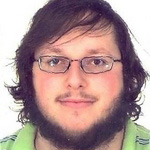
Lorenz Demey has been a PhD student at the Institute of Philosophy (KU Leuven) and a guest researcher at the Institute for Logic, Language and Computation (Universiteit van Amsterdam). He obtained an MA in philosophy in 2008 at KU Leuven, supervised by Leon Horsten, and an MSc in Logic in 2010 at Universiteit van Amsterdam, supervised by Johan van Benthem and Dick de Jongh. His main research area is philosophical logic; particular topics include the application of probabilistic dynamic epistemic logics to problems in game theory and cognitive science.
Sebastian Enqvist originally studied philosophy at Lund University and logic at Gothenburg University (Sweden). He then went on to write his PhD thesis in philosophy at Lund University, on the topic of belief revision. The thesis applied logic to formal modeling of questions and research agendas in the context of belief dynamics. The thesis is called “Interrogative Belief Revision” and was defended in the fall of 2011. Sebastian is currently employed as a guest post doc at the ILLC, where he will mainly be working on abstract model theory for modal and coalgebraic languages. Some other current research interests of his include: logics of computation, logic and topology, category theory, type theory and foundations of mathematics, philosophy of mathematics, automated reasoning and epistemology.
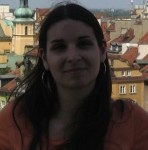
Virginie Fiutek obtained her PhD at the ILLC under the supervision of Sonja Smets and Frank Veltman in 2013. She received her MA in Philosophy in 2006 at the University of Lille under the supervision of Shahid Rahman. She also studied and obtained a bachelor’s degree in History. Her main research interests are Belief Revision Theory and Dynamic Epistemic Logic, Epistemology, Argumentation Theory and Game semantics.
Paolo Galeazzi has been a PhD researcher within The Logical Structure of Correlated Information Change Project (LogiCIC) at the Institute for Logic, Language and Computation (ILLC), University of Amsterdam, under the supervision of Sonja Smets and Nina Gierasimczuk. He obtained his Bachelor’s degree in Philosophy at the University of Milan with a thesis on evolutionary game theory and problems of coordination and his Master’s degree in Logic at the University of Florence with a thesis on epistemic game theory an the backward induction problem. The main focus of his research is epistemic game theory and in general the study of structures for epistemology in game theory. He is also interested in modal logic, probabilistic logic, quantum physics and quantum computation, decision theory, philosophy of science and philosophy of language.

Nina Gierasimczuk was a postdoctoral researcher at the ILLC funded by her individual NWO research Veni 2013 grant: “Learning from each other: Formal analysis of multi-agent learning”. She obtained her PhD in Computer Science from University of Amsterdam and her MPhil in Philosophy from University of Warsaw. Her areas of research include formal epistemology, formal learning theory, dynamic epistemic logic, computability theory, belief revision, and multi-agent systems. She is also actively involved in research into the role of logic and logical modelling in cognitive science. Since January 2016 she has started a permanent position at the university of Copenhagen. For more information see her website.
Jens Ulrik Hansen has been visiting the Logical Structure of Correlated Information Change Project (LogiCIC) at the Institute for Logic, Language and Computation (ILLC), as a postdoc sponsored by the Carlsberg Foundation. He obtained his PhD in 2011 from Roskilde University, Denmark in Philosophy and Computer Science and has a M.Sc. in Mathematics from University of Copenhagen, Denmark. He also visited ILLC in 2008-2009 as a PhD student. His past research mainly concerned various kinds of hybrid logics, tableau systems, dynamic epistemic logics and the use of description logics in biomedical knowledge representation. In his he has focused on dynamic epistemic logics, formal and social epistemology, logics for multi-agent systems, and the formal modeling of information dynamics in situations of social interaction inspired by phenomena from Social Psychology.
Maximilian Huber received his bachelor’s degree in philosophy and history from the University of Basel (2010) and his master’s degree in philosophy from the University of St Andrews (2011). After completing the logic year at the University of Amsterdam’s Institute for Logic, Language and Computation (2012), he is now writing his PhD under the supervision of Marcel Weber as part of a SNSF-funded research project on counterfactual reasoning in biology. He aims to understand biological modality by having a close look at functions, constraints and laws. He has been a board member of SwissPhilO and a member the editorial committee of dialectica.
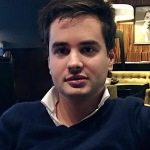
Benjamin Icard has been pursuing a PhD in Philosophy under the supervision of Prof. Paul Égré at the Institut Jean Nicod in Paris. His interests lie mainly in defining and evaluating information quality, using resources from epistemology, formal epistemology and the various kinds of epistemic logics. His doctoral project which is funded by the French Ministry of Defense, aims to further investigate the understanding of complexunreliable attitudes (e.g. lying, deceiving, disinforming) and to provide reliable methods for assessing them. He was a guest PhD student at the ILLC supervised by Prof. Sonja Smets.

Kohei Kishida was a postdoc (2012-2013) at the ILLC working in Dr. Sonja Smets’s VIDI project “Reasoning about Quantum Interaction”. He studied logic, philosophy, and mathematics at the University of Pittsburgh and Carnegie Mellon University, and earned his Ph.D. degree in December 2010 from the Department of Philosophy, U. Pitt, under Professors Steve Awodey and Nuel Belnap. Before coming to the ILLC, he was a postdoc at the Department of Artificial Intelligence, the University of Groningen. He is primarily interested in mathematical and philosophical logic (in particular, non-classical logics), and his primary approach to topics in logic is to apply methods and insights of category theory. His interest also lies in broad issues in philosophy, with specialization in formal epistemology and philosophy of science (in particular, the philosophy of physics and spacetime).
Chanjuan Liu has been a PhD candidate in the School of Electronics Engineering and Computer Science (EECS), Peking University, under the supervision of Kaile su and Fenrong Liu. Sponsored by the China Scholarship Council (CSC), she visited the Institute for Logic, Language and Computation (ILLC), University of Amsterdam (UvA), as a joint-training PhD student supervised by Johan van Benthem, and Sonja Smets. Currently, her research is mainly focused on Logic and Game Theory, especially reasoning about bounded rationality and preference. The research interests of her also include Artificial Intelligence, and Security Protocol Verification.
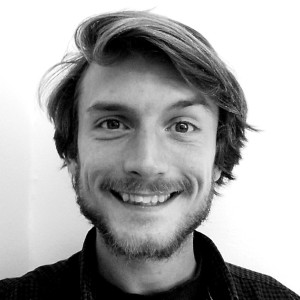
Rasmus K. Rendsvig has been PhD candidate in Theoretical Philosophy at Lund University and member of the scientific division of the Center for Information and Bubble Studies, University of Copenhagen. His primary research interests relates to the interplay of epistemology and interaction in social contexts with a special focus on social influence and formal epistemology.
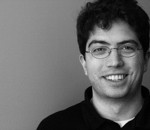
Bryan Renne received a Ph.D. and an M.Phil., both in Computer Science, from the City University of New York (CUNY) Graduate Center in New York City, USA and a B.S. in Computer Science from Cornell University in Ithaca, New York, USA. He worked for two years as a postdoctoral researcher in the Faculty of Philosophy at the University of Groningen before coming to the Institute for Logic, Language and Computation (ILLC) at the University of Amsterdam, where he is a postdoctoral researcher funded by a three-year Innovational Research Incentives Scheme Veni grant from the Netherlands Organisation for Scientific Research (NWO). His areas of research include Formal Epistemology, Evidence-based Belief Revision, Multi-agent Systems, Dynamic Epistemic Logic, Justification Logic, Epistemic Logic, and Modal Logic. For more information, including a list of his publications and other activities, please see his website.
Ben Rodenhauser obtained his PhD in 2014 at the ILLC, under the supervision of Johan van Benthem, Sonja Smets, Frank Veltman and Rineke Verbrugge. He received his Master of Science degree in Logic at the ILLC, and did his undergraduate studies at the University of Tübingen in Linguistics, Philosophy and Computer Science. His research interests include Dynamic Epistemic Logic and Belief Revision Theory, Formal Semantics and Pragmatics, Epistemology, and Action Theory.
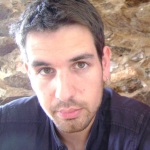
Joan Casas Roma studied Computer Science (2005-2008) at the University of Vic (UVic, Spain), a Master in Logic and Philosophy of Science (2011-2013) at the University of Salamanca (USAL, Spain), and is currently holding a PhD grant in the Knowledge Representation and Reasoning research line at the Open University of Catalunya (UOC, Spain) under the supervision of Dr. Antonia Huertas (UOC) and Dr. Elena Rodríguez (UOC). His main research interests are epistemic logic, hybrid logic and intensional logic both from a formal and a philosophical perspective. Part of his research is linked to the LINHY research project (Intensional and Hybrid Logic), funded by the Spanish Department of Education and led by Dr. María Manzano (USAL). As part of his PhD, he is doing a research stay at the ILLC from September 2015 to December 2015 under to supervision of Prof. Sonja Smets and Dr. Dick de Jongh.
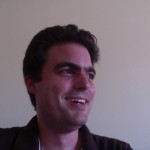
Joshua Sack was a postdoc at the ILLC working with Prof. Sonja Smets on the VIDI project “Reasoning about Quantum Interaction”. He received his PhD degree in June 2007 from the Department of Mathematics at Indiana University, having studied Applied Logic under the direction of Professor Moss. After graduating, he taught at California State University Long Beach in 2007, the University of California Irvine in 2008, and then held research positions in Reykjavik University, the University of Groningen, and California State University Long Beach. His research interests are to develop logics that integrate those of probability, knowledge, time, and dynamics, and to apply these to problems in computer science (multi-agent systems, concurrency theory, and quantum computing), game theory (mixed strategies), philosophy (formal epistemology), and mathematics (with connections to topology, algebra, and combinatorics).
Amir Hossein Sharafi has been a PhD student at Shahid Beheshti University of Iran under the supervision of Prof. Rajabali Borzooei at the department of Mathematics. He works on algebraic models of Quantum Logic and a new logic for Effects as unsharp Quantum measurements. In 2017 he has been a visiting researcher at the ILLC under the supervision of Prof. Sonja Smets and Dr. Soroush Rafiee Rad and a visiting researcher at the Mathematical Institute of the Slovak Academy of Sciences in Bratislava under the supervision of Prof. Anatolij Dvurecenskij. His research areas include Probabilistic Reasoning, Dynamic Epistemic Logics, Quantum logic, Algebraic models of quantum logic such as Lattice Effect Algebra.
Chenwei Shi has been a PhD candidate at ILLC and Tsinghua University –The University of Amsterdam Joint Research Centre for Logic under the supervision of Johan van Benthem, Sonja Smets and Fenrong Liu. He received his MA in philosophy under the supervision of Fenrong Liu in 2011 from the Department of Philosophy at Tsinghua University. His research interest lies mainly in formal epistemology and mainstream epistemology, including topics on evidential reasoning, abduction, default reasoning, epistemic closure principles and belief revision.

Elahe Shirinkalam has been a PhD researcher working under the supervision of Prof. Morteza Moniri within the mathematical logic at the Shahid Beheshti university. In 2010, she obtained her master’s degree under the supervision of Prof. Taher Ghasemi Honary in mathematical analysis from the kharazmi university. She is interested in mathematical analysis, mathematical logic, topology, cryptography, set theory, quantum logic, category theory and its application to logic. Her main research areas include dynamic epistemic logic, dynamic quantum logic and some new constructions related to these topics. She visited ILLC from September 2015 to March 2016.

He Shunan has spent 2 years at the ILLC under supervision of Prof. Smets. His stay was sponsored via a visiting scholarship from China. He Shunan was affiliated as a PhD student to Beijing normal university, where he worked under the supervision of Jiahong Guo.
eeeeeeeeeeeeeeeeeeee12eeere
Jing Wang has been a PhD Student at Xiamen University, Fujian Province, China. She is visiting the ILLC in the frame of the Erasmus Mundus Programme.
Audrey Yap is an associate professor in the Philosophy department at the University of Victoria, in British Columbia. Her PhD work was done at Stanford University, where she wrote a dissertation entitled Mathematical Practice and the Philosophy of Mathematics under the supervision of her co-advisors Michael Friedman and Sol Feferman. Currently, she is working in several areas, including the history and philosophy of mathematics and logic, as well as in Dynamic Epistemic Logic, studying the ways in which we can model changes in agents’ beliefs over time.
Shengyang Zhong has finished his PhD at the Institute for Logic, Language and Computation (ILLC), University of Amsterdam (UvA) in 2015. His PhD research project dealt with dynamic quantum logic and was supervised by Dr. Alexandru Baltag. Before joining ILLC, he studied for his Bachelor’s and Master’s degrees at the Institute of Logic and Cognition, Sun Yat-sen University. His academic interest in general is the interplay among logic, mathematics, physics, computer science and philosophy, as his PhD research topic exemplifies.

